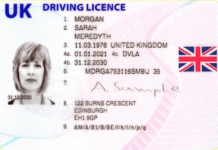
Potholes are not just an inconvenience; they’re a serious issue for motorists, posing risks to your vehicle’s health and your safety. Potholes only get dealt with if they’re reported to the local council, but we asked 3000 UK motorists if they’d report a pothole… the results could be an indication of why we have so many.
73% of drivers said they wouldn’t report a pothole in the UK. This stat comes from a wider survey Zego Van Insurance commissioned. Other stand out stats are:
- 61% say they find drivers who don’t use indicators the biggest dangers to motorists
- 57% of Brits says the biggest pet peeve is, “slow turning drivers”
- 35 % of UK drivers say older drivers above 80 should not be allowed to drive
With expert insights from Zego Van Insurance, let’s delve into the world of potholes, focusing on the costs they incur, the compensation process, and practical advice for drivers.
The True Cost of Potholes
Potholes can cause extensive damage to your vehicle, leading to costly repairs. Here’s what you might end up paying for:
Tyres: Repair or replacement can cost from £50 to £200 or more, depending on the type of tyre.
Wheels: Repairing a bent wheel starts around £50, but replacing a cracked alloy wheel can cost over £100.
Suspension: Simple repairs might start at around £100, but extensive damage can cost £1,000 or more.
Exhaust: Repairs can range from £50 for minor fixes to £500 for complete system replacements.
Steering: Realignment costs can start at about £50, but more severe issues can significantly increase the price.
Beyond the financial impact, potholes represent a real safety hazard. They can cause accidents by forcing drivers to swerve unexpectedly or by causing a loss of vehicle control.
Seeking Compensation from the Council and understanding your rights
In the UK, councils have a legal duty to maintain roads. If a pothole damages your vehicle, you might be able to claim compensation. However, the amount varies significantly and is determined on a case-by-case basis. For minor damage, you might receive compensation covering the full cost of repairs. For more significant claims, the payout can vary. Some councils offer set amounts for specific types of damage, while others assess each case individually.
The Claim Process
Report the Pothole: Before you can claim, the pothole needs to be officially reported. Use the government’s [report-a-pothole service](https://www.gov.uk/report-pothole) or contact your local council directly.
Gather Evidence: Take clear photos of the pothole, its location, and the damage to your vehicle. Keep all repair receipts and a detailed record of the incident.
Submit Your Claim: Contact the council responsible for the road with your evidence and a detailed account of the incident. Include the specific location of the pothole, the damage incurred, and any costs you faced.
Follow Up: If your claim is denied, you can challenge the decision. Gather more evidence, such as maintenance records for the road, and consider seeking legal advice if the claim involves significant costs.
James Granton, a seasoned insurance professional from Zego Van Insurance.
Potholes can cause significant damage and lead to unexpected expenses, but understanding how to navigate these road hazards can make all the difference. By staying vigilant, reporting issues, maintaining your vehicle, and knowing how to seek compensation, you can protect yourself from the worst of what these road nuisances have to offer.
Help keep news FREE for our readers
Supporting your local community newspaper/online news outlet is crucial now more than ever. If you believe in independent journalism, then consider making a valuable contribution by making a one-time or monthly donation. We operate in rural areas where providing unbiased news can be challenging. Read More About Supporting The West Wales Chronicle






















